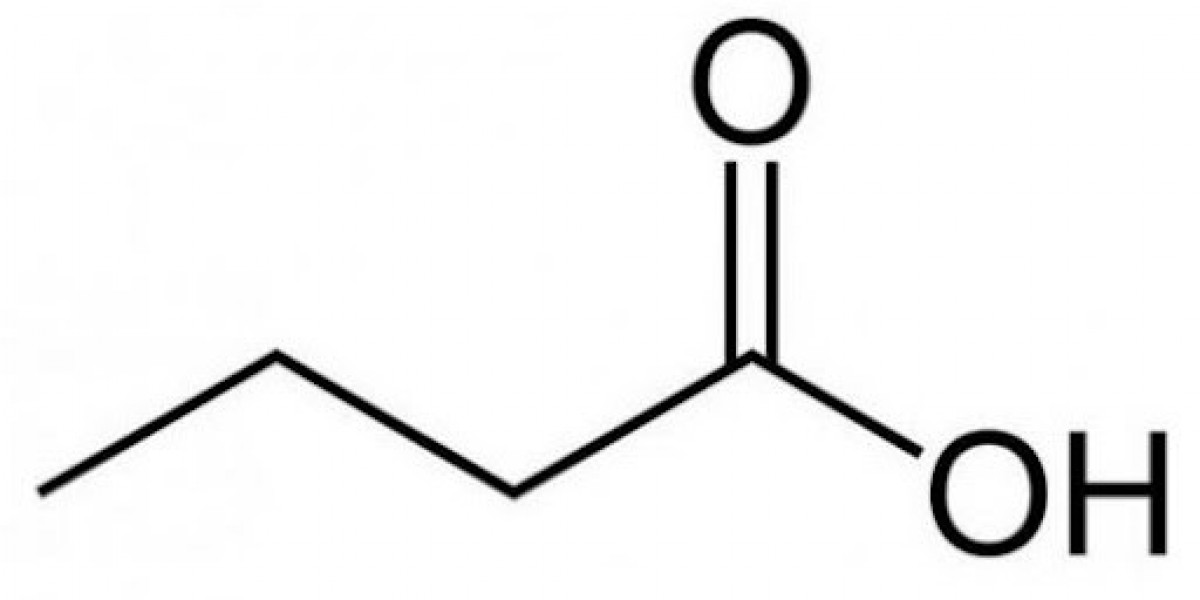Butyric acid, a short-chain fatty acid (SCFA) with the chemical formula C₄H₈O₂, is gaining significant attention in scientific and industrial applications. It is a naturally occurring compound found in dairy products, fermented foods, and the human gut. Butyric acid serves as a key biochemical compound, playing a crucial role in multiple scientific fields, including pharmaceuticals, agriculture, biotechnology, and food sciences. Its growing demand in various sectors has led to an expansion of the butyric acid market, with increasing applications in health, nutrition, and sustainable industry practices.
Role in Biomedical Research and Pharmaceuticals
One of the primary scientific uses of butyric acid is in biomedical research and pharmaceutical applications. Butyric acid is known for its beneficial effects on gut health and has been studied for its potential role in treating gastrointestinal disorders, such as inflammatory bowel disease (IBD), Crohn’s disease, and ulcerative colitis. It acts as an energy source for colonocytes and exhibits anti-inflammatory properties, which help in maintaining intestinal homeostasis.
Additionally, butyric acid derivatives, such as sodium butyrate, have been investigated for their role in cancer therapy. Research suggests that butyric acid acts as a histone deacetylase (HDAC) inhibitor, promoting cell differentiation and apoptosis in cancerous cells. This has made it a subject of interest in epigenetic therapies, particularly for colorectal cancer treatment. Its potential neuroprotective properties are also being explored in neurological disorders, including Alzheimer’s and Parkinson’s disease.
Application in Agriculture and Animal Feed
The butyric acid market has seen increasing demand in agriculture, especially in animal feed. It is used as an additive in livestock nutrition to enhance gut health, improve digestion, and promote growth performance. Butyric acid and its salts, such as calcium and sodium butyrate, serve as alternatives to antibiotic growth promoters (AGPs) in poultry, swine, and aquaculture industries.
Studies have shown that butyric acid supplementation in animal feed enhances nutrient absorption, strengthens intestinal barriers, and reduces the prevalence of pathogenic bacteria like Salmonella and Escherichia coli. These benefits contribute to improved livestock productivity and sustainability in the agricultural sector.
Butyric Acid in Food and Beverage Industry
In the food industry, butyric acid is utilized as a flavoring agent and preservative. It is naturally present in fermented foods, such as cheese, butter, and yogurt, where it contributes to their characteristic aroma and taste. Synthetic butyric acid is also used to enhance the flavor of processed foods and beverages, including snacks, candies, and alcoholic drinks.
Another significant application is in functional foods and dietary supplements. Butyric acid is recognized for its prebiotic effects, as it supports beneficial gut microbiota. It is increasingly incorporated into probiotic formulations to promote gut health and immune function. Furthermore, encapsulated butyric acid is being explored for targeted delivery in nutraceuticals to enhance its bioavailability and effectiveness.
Industrial and Biotechnology Applications
Beyond its applications in food and medicine, butyric acid plays a vital role in industrial biotechnology. It serves as a precursor for bio-based chemicals and biodegradable polymers. Butyric acid fermentation is an essential process in the production of biofuels, bioplastics, and green solvents, contributing to sustainable industrial practices.
In the cosmetics and personal care industry, butyric acid is used in the formulation of skin-care products due to its antimicrobial and moisturizing properties. It is particularly effective in treating acne and other skin conditions by balancing skin microbiota and reducing inflammation.
Future Prospects and Market Growth
The butyric acid market is expected to witness significant growth due to increasing demand in the healthcare, agriculture, and biotechnology sectors. The rise of precision medicine, personalized nutrition, and sustainable agricultural practices is likely to drive further innovation and applications of butyric acid.
Moreover, advancements in microbial fermentation technology are making the large-scale production of butyric acid more efficient and cost-effective. Researchers are also exploring genetically engineered bacterial strains to optimize butyric acid yields and develop novel bio-based applications.
Conclusion
Butyric acid has emerged as a critical compound with diverse scientific applications in pharmaceuticals, agriculture, food sciences, and industrial biotechnology. Its role in gut health, disease treatment, animal nutrition, and bio-based product development underscores its market relevance. As research continues to expand, the potential of butyric acid in sustainable and health-related industries will further enhance its market value, making it an essential compound in various scientific disciplines.
read more :
| https://www.pristinemarketinsights.com/butyric-acid-market-report |








